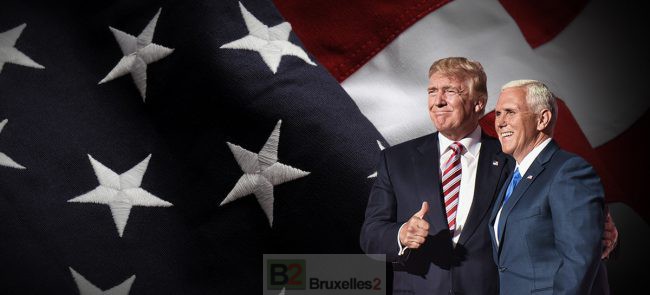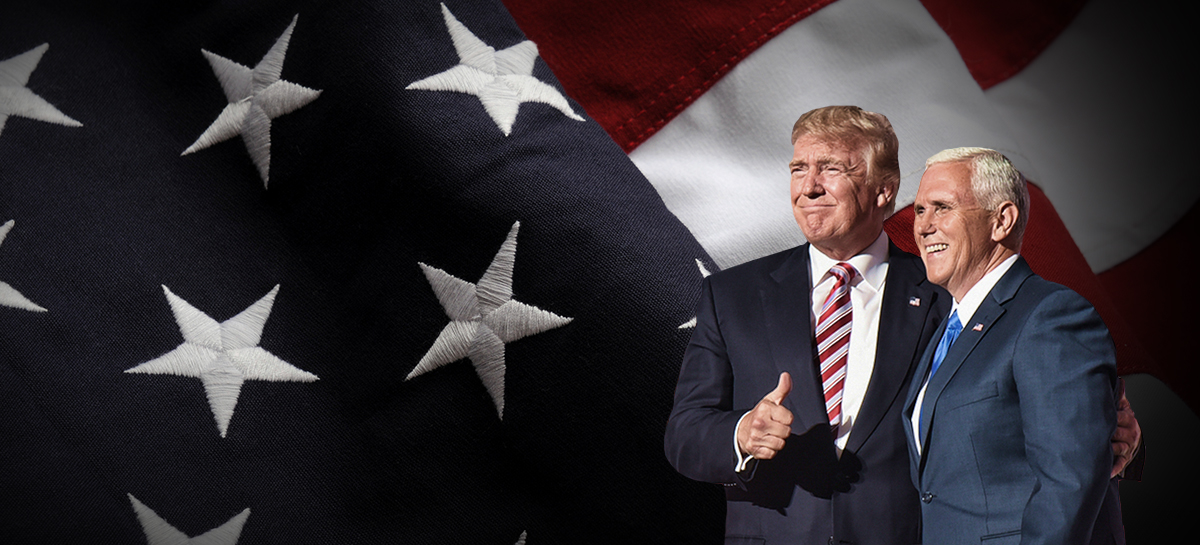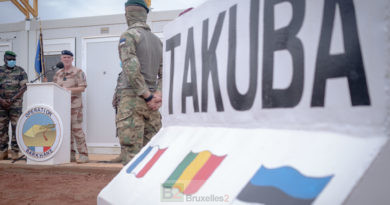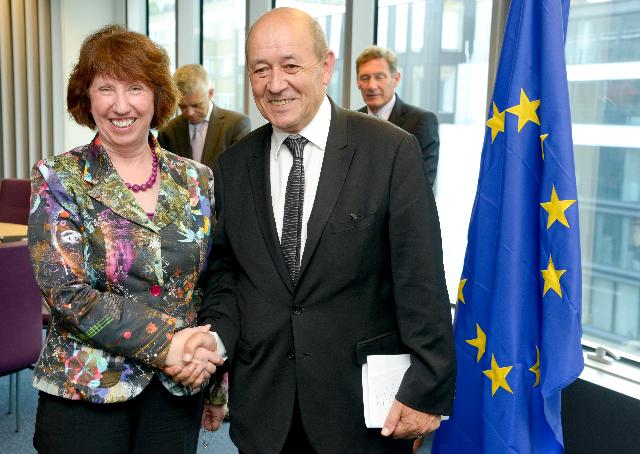Trump's "America First". For Europe, a certain language of truth
(BRUSSELS2) The speeches of Donald Trump, the candidate for the presidency of the United States, in terms of foreign policy must be viewed with some attention. Contrary to what her competitor Hillary Clinton suggests, these texts reflect a certain logic (at least in terms of foreign policy). We may not share it but it is far from being imbecile as some commentators present it. If we remove the campaign tone, of a self-glorifying nature (in the genre: 'everything will change with me') a bit martial, and the repetitive attacks (sometimes below the belt) countering its competitor, its positions (1 ) are very political. His campaign slogan " America First translates into an axiom: take care of our country first, before worrying about the rest of the world “, perfectly declined in terms of foreign policy.

The United States too lenient towards its allies
In his first foreign policy speech in April, Trump warned: within NATO “ our allies are not paying their fair share. (...) Many of them (...) regard the United States as weak and lenient and feel no obligation to honor their agreements with us. In NATO, for example, apart from America, only 4 of the other 28 member countries exceed the required minimum of 2% of GDP spent on defence. (...) Our allies must contribute [more] to the financial, political and human costs. (...) The countries we defend must pay for the cost of this defense. Otherwise the United States must be prepared to let these countries defend themselves. We do not have the choice »
Automatic solidarity within the framework of NATO
Trump repeated it in July in an interview with New York Times. US intervention will no longer be automatic. " I would prefer to be able to continue existing agreements but only if the allies stop taking for granted what can be called an era of American largesse that is no longer bearable. ". Above all, it would be necessary to verify that these countries “ have complied with their obligations to us ».
“I would prefer to be able to continue” existing agreements, he said, but only if allies stopped taking advantage of what he called an era of American largess that was no longer affordable.
The permanent US presence abroad called into question
Similarly, in this interview, he believes that “ forward deployment of US troops overseas is not always necessary. (...) If we decide that we have to defend the United States, we can always deploy from American soil, he points out. In doing so, he could call into question the American presence in Europe, which may seem superfluous with regard to this axiom.
A certain temptation to isolationism
The candidate for the American presidency returns to what is one of the traditional currents of America: isolationism. " When the world sees the mess the United States is in and we start talking about civil liberties, I don't think we're a very good messenger. he told the New York Times. " I do not believe that we have the right to give lessons. How can we give lessons when at home people are shooting in cold blood at the police? » he underlines. In other speeches, he particularly criticized the interventions in Iraq (2003) and Libya (2011), deeming them ineffective.
Comment: a slightly truncated reasoning
This is not the end of the mutual solidarity clause as feared at the level of NATO or the Baltic countries. It is the end of a distorted system, a bit parasitic, which consists for most European countries of considering NATO and the United States as all-risk insurance at lower cost, with a minimum of investment (both financial than in risk-taking). Trump's language is quite logical: there is no question of making an effort if the Europeans do not contribute more decisively to NATO.
If we can share this statement by Trump, we should also recall the major effort made by the Europeans who contributed to the operations carried out solo by the Americans in Afghanistan (from 2001) and in Iraq (from 2003).
Many countries have responded with men, materials and financial commitment to interventions that were largely questionable (2) in terms of political and military usefulness as well as international law (for Iraq), thus showing a certain solidarity out of bounds with American interests (of the moment).
Trump also forgets that the United States has often been careful to lock NATO in the direction of its interests. And the significant military investment made has also been paid back, in terms of national economic benefits, the United States often imposing made-in-USA production on its allies.
(Nicolas Gros-Verheyde)
(1) Download the speeches on the foreign politic (April 2016) and on theradical Islam (August 2016)
(2) Donald Trump affirms that he very early opposed the intervention in Iraq in a speech pronounced in August. " I was an opponent of the war in Iraq from the start. (...) I publicly expressed my private doubts about the invasion. Three months before the invasion, I said, in an interview with Neil Cavuto: We do not maybe we shouldn't (...) the economy is a lot biggest problem ". En August 2004, in Esquire magazine he declared: « Look at the war in Iraq and the mess that we are. (...) Does anyone really believe that Iraq is going to be a wonderful democracy where people are going to run to the polling station, gently slip a ballot in and the winner rules the country? Let's go ! Two minutes after we leave, there will be a revolution, and the baddest, toughest, smartest, most vicious guy will take over. And there will be weapons of mass destruction, which Saddam did not have. »


